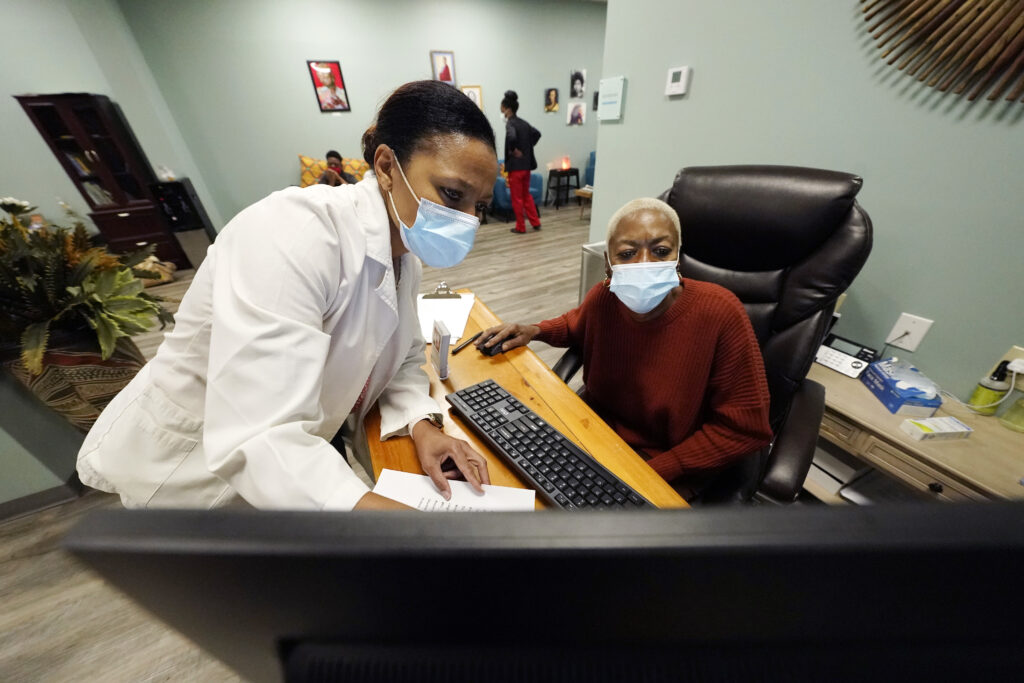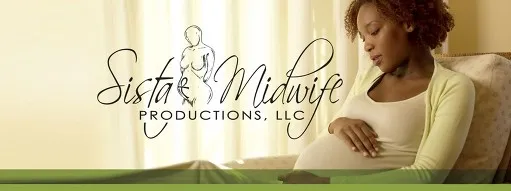By Tariqah Shakir-Muhammad, Staff Writer
- April 18, 2023

April Valentine thought she was going to deliver her firstborn like any other mother at Centinela Hospital in Inglewood, Calif. However, in just 24 hours she died before meeting her baby girl.
The 31-year-old mother’s family said that hospital staff ignored her complaints of pain and swelling and denied her doula being present.
Mykesha Mack is Ms. Valentine’s family’s spokesperson. She told The Final Call that the family is currently cooperating with an investigation into the mother’s death. “They’re pretty much keeping their heads up,” she said. “There is an investigation going on with the doctor, the nurses and the hospital.”
After multiple attempts to reach Centinela Hospital for comment, The Final Call did not receive a response.
According to its website, in 2017 Centinela Hospital was rated as an “award-winning facility for labor and delivery excellence” by Healthgrades, an online resource for information and ratings about physicians and hospitals. Ms. Valentine went into the hospital Jan. 9, she died on Jan. 10.
This tragedy is unfortunately not new for Black mothers. According to a 2022 Pew Research study, 63 percent of Black women say they’ve experienced at least one of seven negative healthcare experiences, the most common experience being that they were not taken seriously. The other six experiences were: having to speak up to get proper care, being rushed by their health care provider, a feeling of being treated with less respect than other patients, a feeling that they received lower-quality care than other patients, that they were looked down on due to weight, and that their women’s health concerns were not taken seriously.
As a result, many pregnant Black women are considering their options elsewhere.
Alternative solutions
The Final Call asked Black women to share their thoughts via social media on maternal health experiences and steps that should be taken to protect pregnant Black women. Lea Caldwell, a mother and grandmother, responded stating, “We definitely need to go back to how we used to give birth. … Our outcomes were so much better.”
Nichole Lucier, also a mother, wrote, “I will take my chances at home with people I trust.”
Home births, midwives, and doulas have increased in popularity in just over the last few years and it is stories like Ms. Valentine’s that are a primary cause of why more Black women are choosing alternatives to hospitals for childbirth services.
Ms. Lucier continued to say, “… Unfortunately, this world’s medical system seems to be primarily focused on cost-efficient, time-efficient, emotionless procedures. I honestly do believe at times there is a place for that. I don’t believe that time and place is during a mother’s birth.”
According to the Centers for Disease Control and Prevention’s National Center for Health Statistics, the rate of maternal death for women aged 15 to 44 in the U.S. has only gotten worse, rising from a rate of nearly 29 maternal deaths per 100,000 births in 2019 to 45.6 in 2021.

Receptionist Mattie Nichols, right, and Dr. Felecia Brown, a midwife at Sisters in Birth, a Jackson, Miss., clinic that serves pregnant women, review the morning’s appointments on Dec. 17, 2021. The facility utilizes an integrative and holistic approach to women’s healthcare by providing comprehensive services including primary care, midwifery care, home healthcare, childbirth education as well as doula support. (AP Photo/Rogelio V. Solis)
Black women make up most of those deaths at 69.9 percent compared to their White counterparts at 26.65 percent.
Octavia X considers herself a domestic engineer and is a mother of three. She preferred having a midwife to relying solely on hospital staff.
“With my first two children, I had OBGYNs (obstetrics gynecology or gynecologist). My wants and needs were never really a priority of theirs. It was more so what was more convenient for them and less of a liability. With my last child, I had a midwife and she was more of a counselor and (was) genuinely concerned with the mental aspect of pregnancy coupled with usual motherly and wifely duties,” she told The Final Call.
“She helped me tap into blockages I had that I wasn’t aware of which ultimately helped me start laboring.” She told The Final Call that having a birth plan is beneficial because it allows the parents to be in complete control.
Black women make up most of those deaths at 69.9 percent compared to their White counterparts at 26.65 percent.
Octavia X considers herself a domestic engineer and is a mother of three. She preferred having a midwife to relying solely on hospital staff.
“With my first two children, I had OBGYNs (obstetrics gynecology or gynecologist). My wants and needs were never really a priority of theirs. It was more so what was more convenient for them and less of a liability. With my last child, I had a midwife and she was more of a counselor and (was) genuinely concerned with the mental aspect of pregnancy coupled with usual motherly and wifely duties,” she told The Final Call.
“She helped me tap into blockages I had that I wasn’t aware of which ultimately helped me start laboring.” She told The Final Call that having a birth plan is beneficial because it allows the parents to be in complete control.

Ms. Octavia X also stated that a birth plan is very helpful. These plans are usually written by the pregnant woman that sets out in advance her preferences for labor.
“I believe birth plans are beneficial because the person you chose to be there to advocate for you, can without hesitation speak for you when your focus is elsewhere. It also helps you prepare mentally, seeing it. There’s so many negative opinions about birth and what other people went through and how it didn’t work for them that sometimes if you’re not clear and set on what it is you want for yourself and your baby. Those seeds being planted will germinate and take over what you instinctively know you’re capable of.”
Lakisa Muhammad from Phoenix, Arizona, was a doula for 10 years and is now a midwife. “I absolutely believe that doulas are beneficial for every expecting mother. And the great thing is doulas not only benefit mothers, but they can be a helpful addition to the whole birthing team—fathers, grandmas, midwives, labor and delivery nurses, and obstetricians,” she said.
She emphasized that Black couples should develop birth plans before starting a family.
“A birth plan is essentially a communication tool. This document is meant to convey the wishes of the family in regards to the environment, or vibe if you will, that they envision for the birth. The birth plan outlines the family’s understanding of and consent to common birth practices and interventions. The act of creating a birth plan is powerful in that families now must research and gain knowledge about all of the possible choices they may be faced with before, during, and after the birth.”
Ms. Muhammad is also an executive director at the Phoenix Birth Foundation in Arizona and co-founder and leader at Arizona Birthworkers of Color.
Ms. Muhammad has witnessed many births as a doula (Greek for “a woman who serves”) and midwife and has seen the disadvantages that Black mothers are faced with in the hands of doctors and nurses who did not have their best interests at heart.
According to bellhousedoulas.com, midwives provide medical care during pregnancy, birth, and the immediate postpartum period. Doulas provide the pregnant woman and her family with emotional, informational, and physical support during pregnancy, birth and the immediate postpartum period.
“The system was not created for us to experience safe and healthy births, so we must be prepared and ready,” explained Ms. Muhammad. “We cannot trust that we will be treated fairly or even told the truth in hospital settings. If we must rely on hospitals for birth, the support team must create a protective ring of fire around the mother as she and Allah (God) do the sacred work of bringing forth this new life which is the answer to a prayer. Education and proper support is the key.”
How to Give Birth to a God
Dr. Charles C. Green, whose expertise is in perinatal and pediatric care, told The Final Call, “Essentially, what has happened is that you have to understand the science and financial value of the sick in America. A baby that’s born between 26-28 weeks, the hospital system makes almost one million dollars if that baby survives. In our country, a doctor doesn’t make money when you’re well, they make money when you’re sick. So, it’s not in the interest of the medical system to have a well baby.”

He continued, “Minister Farrakhan has lectures on that, he taught us everything we need to have a healthy baby.” He was referring to the Honorable Minister Louis Farrakhan of the Nation of Islam.
The lectures that Dr. Green referenced was a series titled, “How to Give Birth to a God” which the Minister taught in 1987.
Dr. Green went on to say that as long as a mother has knowledge and understanding of what she is dealing with while pregnant in terms of prenatal care, her outcomes will be better. “If you study the Teachings of the Most Honorable Elijah Muhammad, you will have a healthy baby,” he said.
Dr. Tamara Muhammad is a certified nurse-midwife and women’s health practitioner. She believes that the best care for a pregnant woman is for her to be in tune with her body.
“Today, as Black women, we want an easy birth, so we also sign up and choose for these things (interventions). To have a regular mom with interventions, the minimum is $20,000.
As a midwife, I am more of an advocate for midwifery—of course! But at the end of the day, the initial health of the mother is what is going to give us the outcome. A lot of times, the (interventions) are not even presented; we sign up for this stuff. We’re two hours into labor and ‘I want an epidural!’ We have babies like White women; it’s their healthcare system. The healthcare system is set up (as a) racist healthcare system.”

Dr. Tamara Muhammad said that in an ideal birth, the mother has complete control. “This is holy ground. That kind of pain—you go through the brink of death to bring forth life—of course Allah (God) is present,” she said. “I don’t think we do enough listening to the mom, we try to tell the mom.”
Alexis X Little is a doula from Chicago. “Having a doula when you’re pregnant and during your labor and delivery is important because you have someone there that you can lean on. During your pregnancy, you can usually reach out to your doula about certain questions—of course, we don’t handle anything medically or clinically but we can at least point you in the right direction so your mind can be a little more at ease as opposed to Googling everything.”

She said that to create a birth plan a mother should ask herself what she wants her birth to be like. “I would say you want to go over your expectations as far as after you have the baby, if you don’t want the baby to be bathed afterward, if you want the baby directly on your chest right afterward, when it comes to vaccines; these are all the things you want to include on your birthing plan so that way when you’re in the transition period, you’re not having to answer major questions and make major decisions while you’re not 100 percent there and focused.”
In addition, Ms. Alexis X believes that pregnancy and the birthing process should be taken more seriously and handled more carefully by the mother, father, and parties involved.
During his lecture series, “How to Give Birth to a God,” Minister Farrakhan stated, “The Honorable Elijah Muhammad taught us, and the Holy Qur’an bears him witness, that we are supposed to reverence the womb that bore us into this world. To reverence the womb means to hold the womb with deep respect and awe, because the womb is majesty. It is the laboratory where God, Himself, operates. Allah (God) neither begets nor is begotten.”
To get a head start, women can use databases such as Sista Midwife Productions, the Black Women Birthing Center and the Black Mamas Matter Alliance (BMMA) to learn more about maternal health and find a doula and/or midwife near them.
These resources and tools can serve as better alternatives for Black mothers which may help in combating the growing maternal and infant death rate. Black mothers can also be on the lookout for more helpful tools and resources in this year’s Black Maternal Health Week which was observed April 11-17. For more information on Black Maternal Health Week, visit blackmamasmatter.org
No comments:
Post a Comment